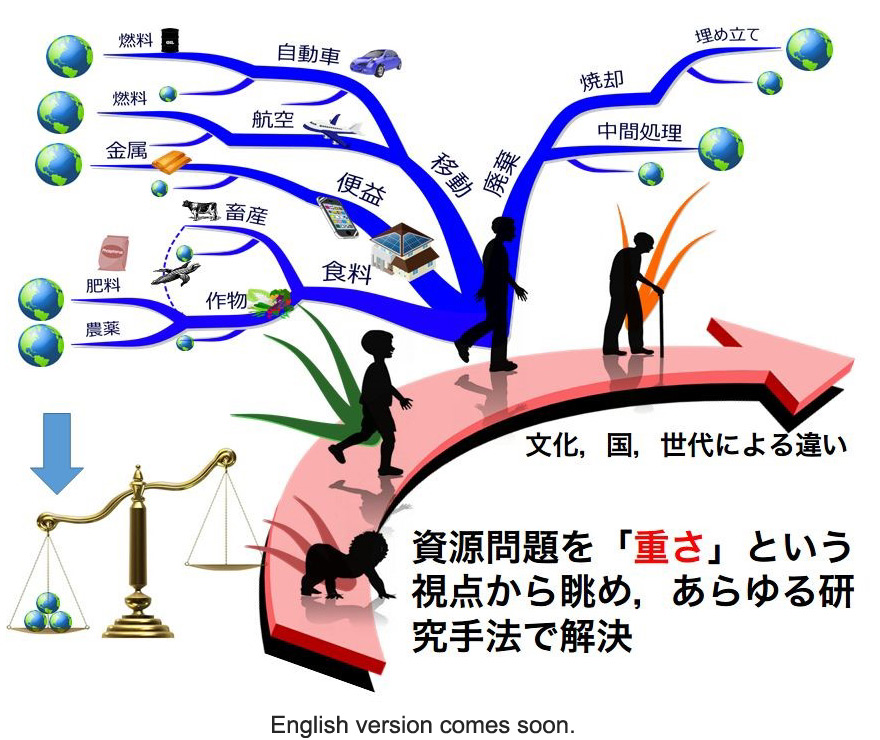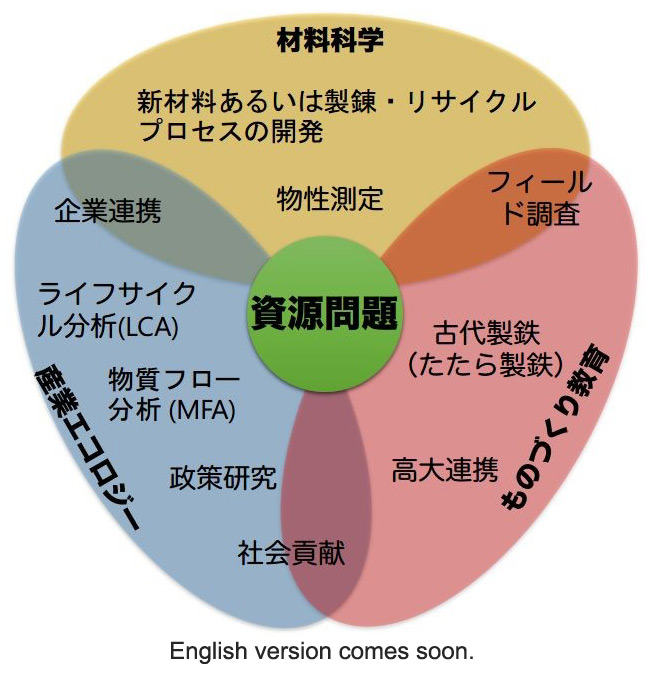
 Japanese
Japanese
The following figure is one of my favorite illustrations to explain our research interests. Without distinction of age or sex, we unavoidably rely on natural resources. It is expected that the higher our lifestyles become sophisticated, the more we need the resources.

Although the term of "resource" has a lot of meanings, our interests are mainly mineral and energy resources. We believe that the "weight" could be useful measure to evaluate the consumption, intensity, and impact by the use of the resources. One of well-known and well-used weight would be carbon dioxide emission. In our laboratory, however, we focus on the weight accompanied by mining activities of the resources as well. Production activities with lower grade ore, with lower technology, and without recycling possibly cause higher mining activities, namely higher environmental disturbance, resulting in influences on biodiversity, human health, and confliction.
In our laboratory, we are grappling with a transdisciplinary research from perspectives of natural science and social science. The former consists of materials science mainly based on thermodynamics and thermal engineering, and the latter consists of industrial ecology based on life cycle analysis and material flow analysis.
Our group belongs to faculty of mechanical engineering, college of science and engineering of Ritsumeikan University, and therefore above-mentioned researches may sound out of scope. However, we can predict and propose what technology we should develop and how much a developed technology improves conventional supply chain, etc through the measurement "weight". We call such the concept as "resource logistics".
In addition to the transdisciplinary research, we are also engaging an education through Japanese traditional ironmaking named Tatara ironmaking. Although steel is currently produced using modern method using a blast furnace and converter, it was produced from iron sand and charcoal by human power in Japan. We could successfully restore this ancient methodology and effectively utilize as educational materials.
Thus, our group's activity consists of three parts as follows;
